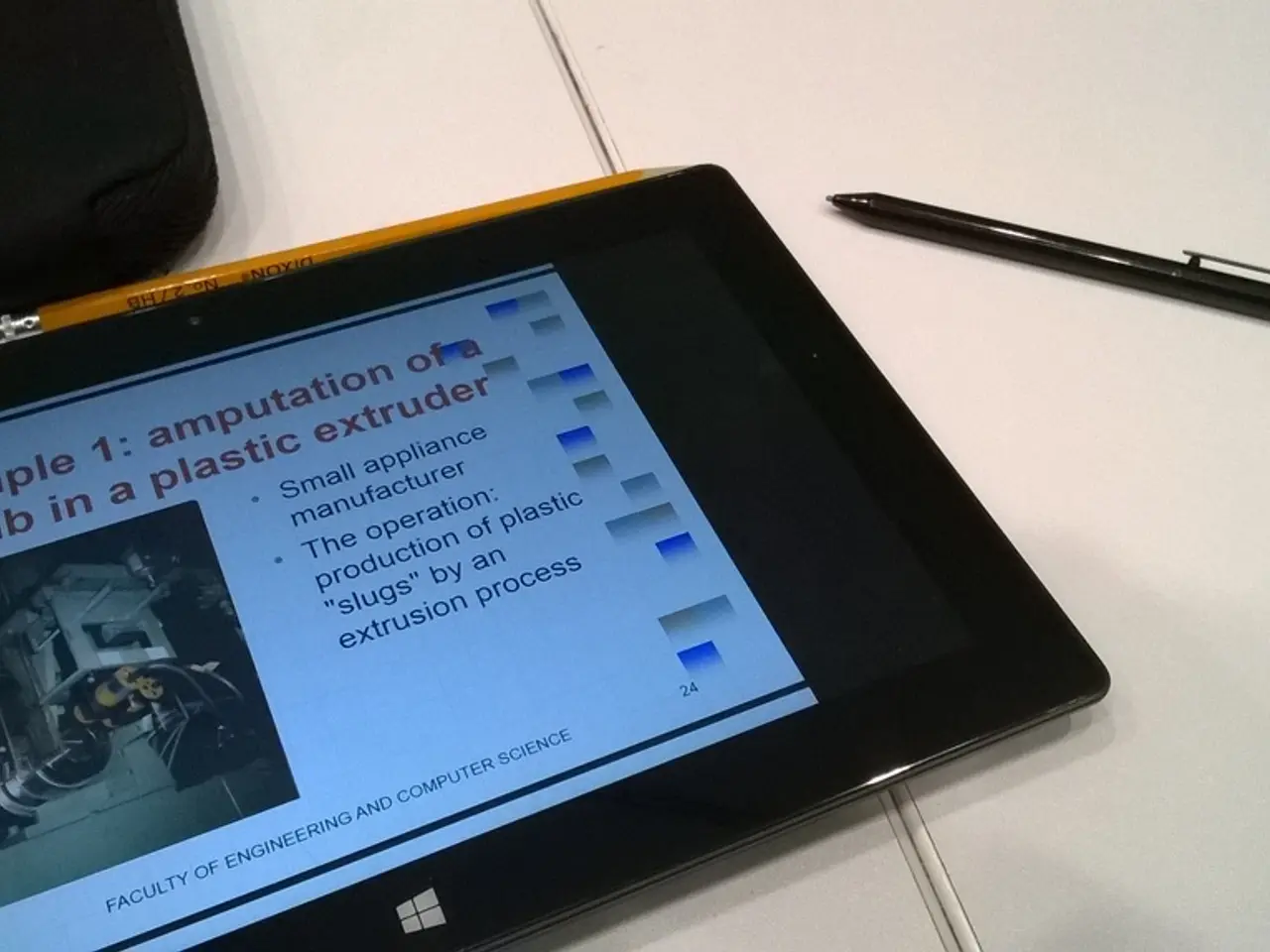Pondering About Pondering: An Introduction to Self-Aware thought Processes, or Metacognition for Newcomers
In the world of learning and personal development, metacognition has emerged as a powerful tool for improving various cognitive functions. Metacognition, or the awareness and regulation of cognitive processes, is often referred to as "thinking about thinking."
By consciously focusing on our own thought processes, we can significantly enhance our learning, problem-solving, decision-making, and emotional control. Here are some strategies to strengthen and practice metacognition:
1. **Active Learning**: Instead of passive memorization, engage actively by questioning yourself. Ask questions like, "What do I already know about this?" or "How can I organize this information better?" This self-questioning promotes deeper understanding and better retention of knowledge.
2. **Self-Reflection and Monitoring**: Regularly evaluate what you understand and what you don't, monitor your progress towards goals, and adjust your strategies based on your observations of your learning habits.
3. **Goal Setting and Strategic Planning**: Set clear, achievable goals and plan your approach to tasks strategically. Review and revise your plan as needed for optimal results.
4. **Use of Metacognitive Tools and Techniques**: Incorporate reflective journaling, self-assessments, checklists, and memory aids like mnemonics and mind maps to enhance recall and understanding.
5. **Brain-Boosting Activities**: Engage in intellectual challenges and creative tasks that stimulate multiple brain regions, such as coding, chess, music, and creative writing. These activities enhance abstract thinking and cognitive flexibility, supporting metacognitive growth.
6. **Mindfulness for Emotional Control**: Practice mindfulness techniques to improve focus, manage stress, and regulate emotional responses. This, in turn, supports better regulation of cognitive processes and decision-making.
7. **Awareness of Strengths and Weaknesses**: Cultivate accurate self-knowledge by identifying your cognitive strengths as well as areas for improvement. This awareness enables you to tailor your learning and problem-solving approaches and become more independent and confident in handling challenges.
8. **Application Across Domains**: Use metacognitive skills not just in academic learning but also in daily problem-solving and decision-making by assessing the requirements of tasks or decisions, planning how to approach them, monitoring effectiveness, and reflecting on outcomes to improve future performance.
By systematically practicing these strategies, you transform passive acquisition of knowledge into active, strategic, and self-directed learning and thinking. This ongoing metacognitive process builds resilience, adaptability, and emotional regulation in everyday life, enhancing your ability to learn smarter, solve problems more effectively, make better decisions, and maintain emotional balance.
Some supplements, such as Bacopa Monnieri, L-theanine + caffeine, Citicoline, Rhodiola Rosea, and exercise, may also support cognitive functions that are crucial for metacognition, making them valuable additions to your metacognitive toolkit. However, it is essential to consult with a healthcare professional before starting any new supplement regimen.
[1] Dunlosky, J., Rawson, K. A., Marsh, E. J., Nathan, M. J., Willingham, D. T., & Adesope, O. (2013). Improving students' learning with effective learning techniques: Promising directions from cognitive and educational psychology. Psychological Science in the Public Interest, 14(1), 4-58.
[2] Karpicke, J. D., & Roediger, H. L. (2008). The critical importance of retrieval for learning. Trends in Cognitive Sciences, 12(8), 297-303.
[3] McNamara, D. K., & Scott, J. A. (2013). The role of metacognition in learning and performance. Annual Review of Psychology, 64, 193-218.
[4] Zimmerman, B. J. (2000). Becoming a self-regulated learner: An overview. Theory into Practice, 39(2), 57-65.
Personal growth and education-and-self-development can be exponentially boosted by practicing and strengthening metacognition, a tool that promotes learning, problem-solving, and emotional control. Strategies such as active learning, self-reflection, goal setting, and using metacognitive tools can cultivate metacognitive skills, resulting in smarter learning and better decision-making.








